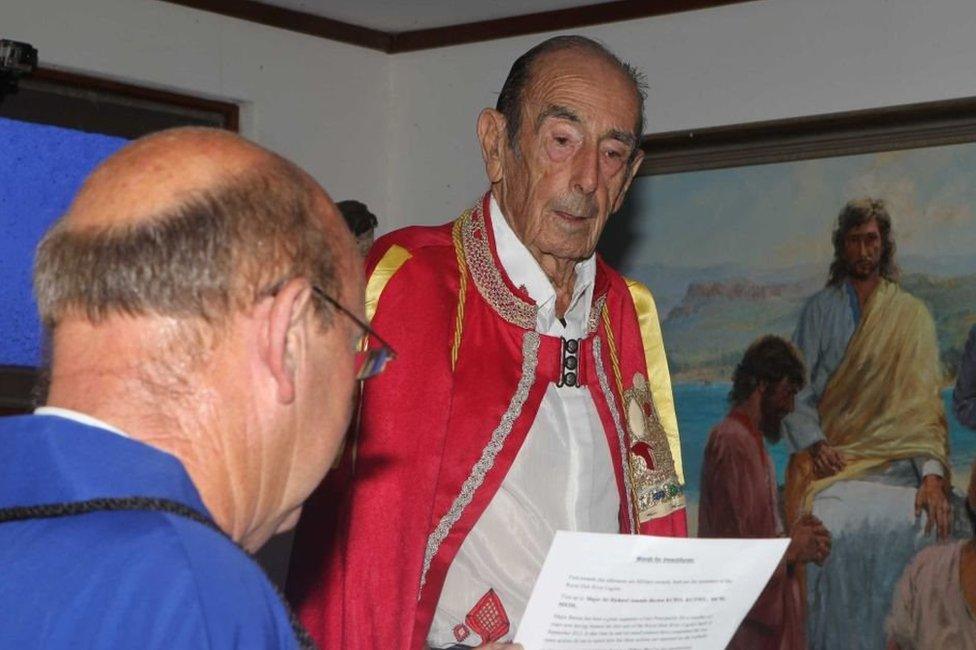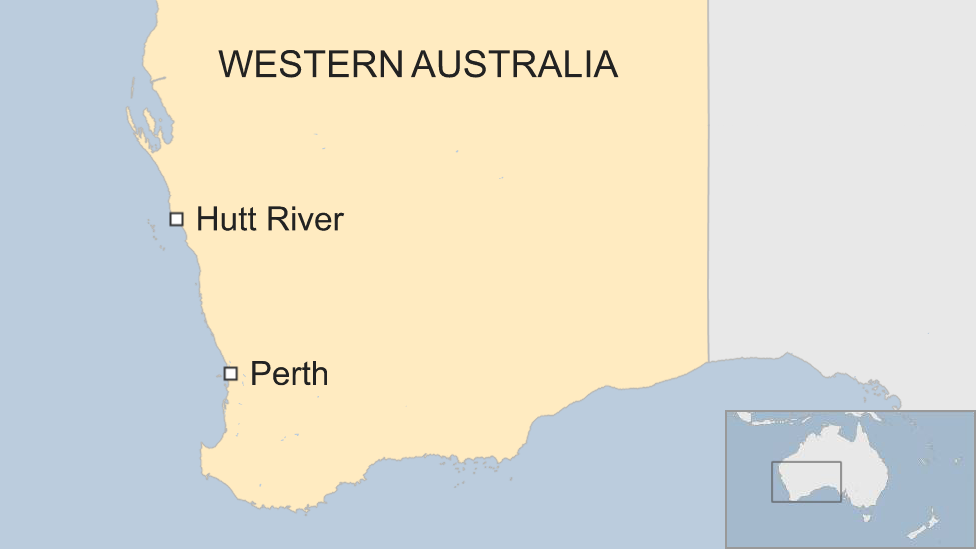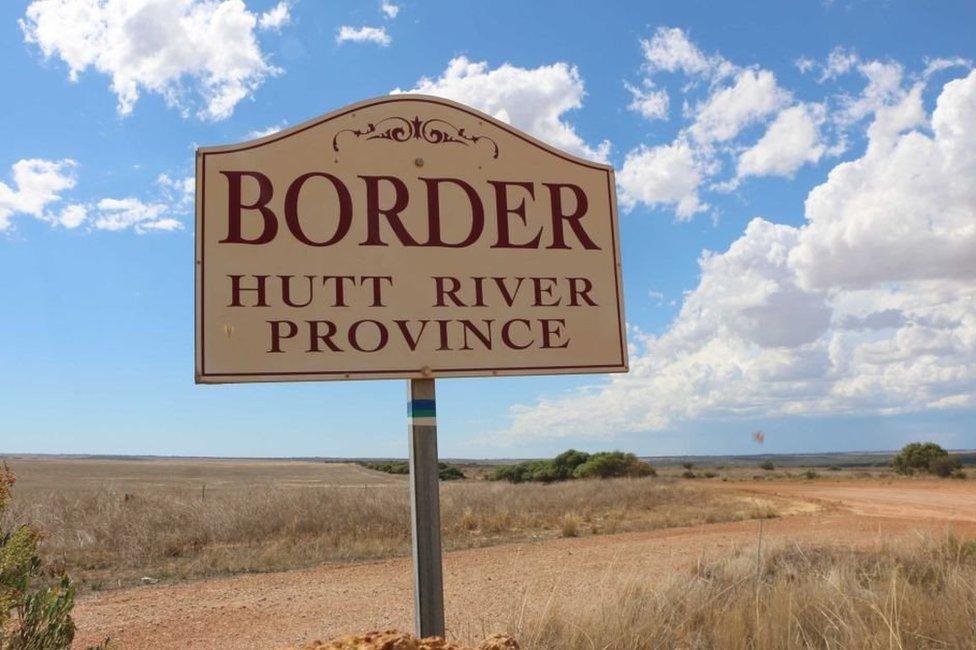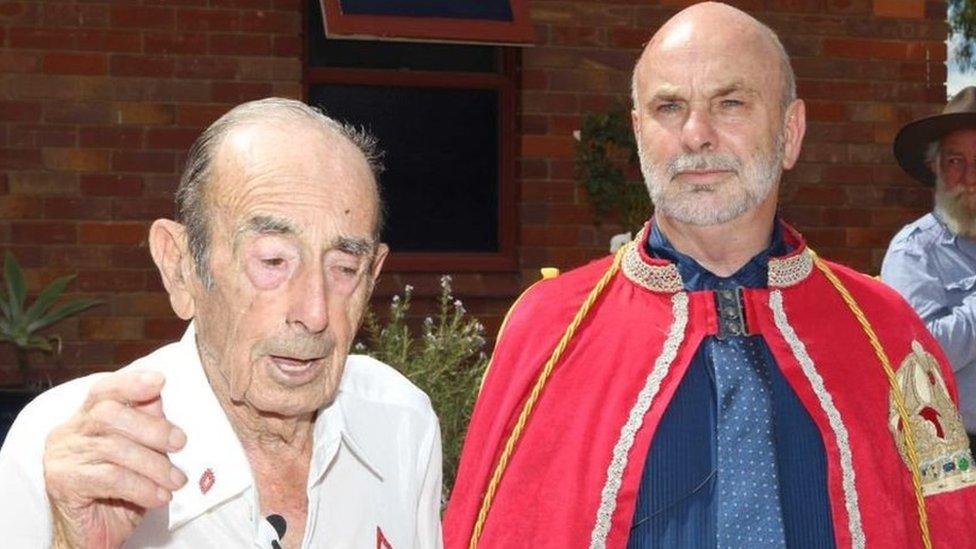Hutt River 'micronation' leaders lose Australian tax battle
- Published

Prince Leonard, the former ruler of Hutt River
It's been a turbulent year for His Royal Highness Prince Leonard I.
The 91-year-old self-proclaimed ruler of the Principality of Hutt River in Western Australia, abdicated power in February.
Now a court has ruled that he and one his sons must pay A$3m (£1.8m; $2.3m) in unpaid taxes.
The judge in the case dismissed their claims to sovereignty over their 18,500-acre farm as having "no legal merit or substance".
The Principality of Hutt River, 500km (300 miles) north of Perth, says it seceded from Australia in 1970, though the government does not acknowledge this.

Self-proclaimed Prince Leonard Casley declared independence after a dispute with the government over wheat quotas.
The farm, which has a population of about 30, created its own tax system and laws and issues its own currency, stamps and passports.
Tourists can pay a few dollars for a visa and a personal tour of the site, which is bigger than the Vatican, Monaco and Nauru, but is not recognised by any government.
The Australian Tax Office has long been chasing the prince and his son, Arthur Casley - known as Prince Wayne - for overdue taxes.
In 1977, the farm briefly declared war on Australia over one demand for payment.
'It is all gobbledygook'
The latest case alleged that Prince Leonard failed to pay income tax between 2006 and 2013. A similar claim was made against his son.
On Friday, the Supreme Court of Western Australia sided with the tax office, and ordered Prince Leonard to pay A$2.7m, while Prince Wayne was ordered to pay A$242,000.
"Anyone can declare themselves a sovereign in their own home but they cannot ignore the laws of Australia or not pay tax," Justice Rene Le Miere said

The farm's independence is not recognised by the Australian government
"It is not sensible or a proper use of judicial resources to recite and analyse all of the defendants' utterances masquerading as legal submissions," he said.
"It is all gobbledygook."
Prince Graeme, who took over as ruler in February but was not implicated in the case, said he was "disappointed" by the court's decision.
"We're a fully independent country," he told the BBC. "We don't believe the income was earned within the Australian jurisdiction."
He suggested that an appeal may be lodged on grounds of human rights violations due to the "mental torture" caused by repeated court cases.
- Published20 February 2017
